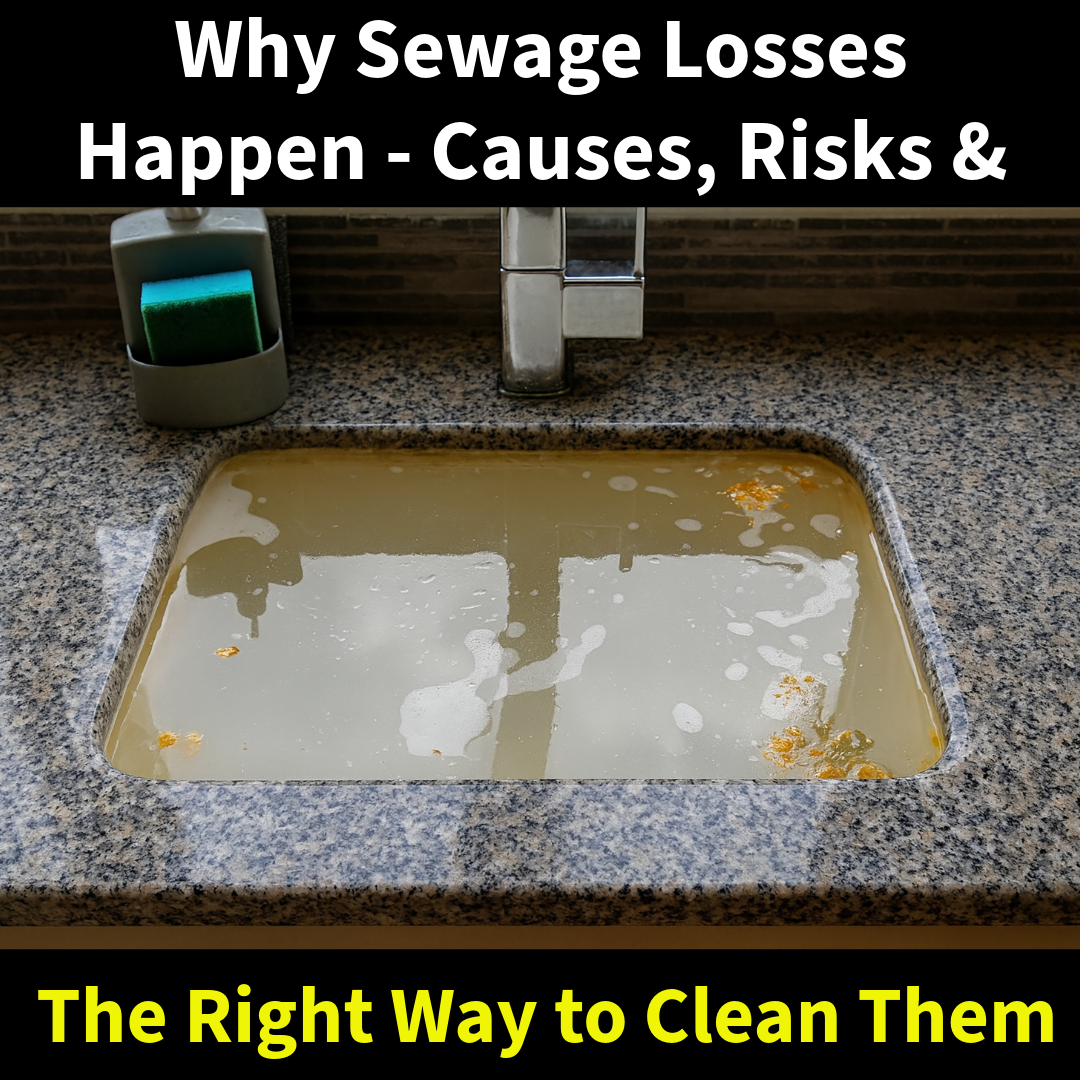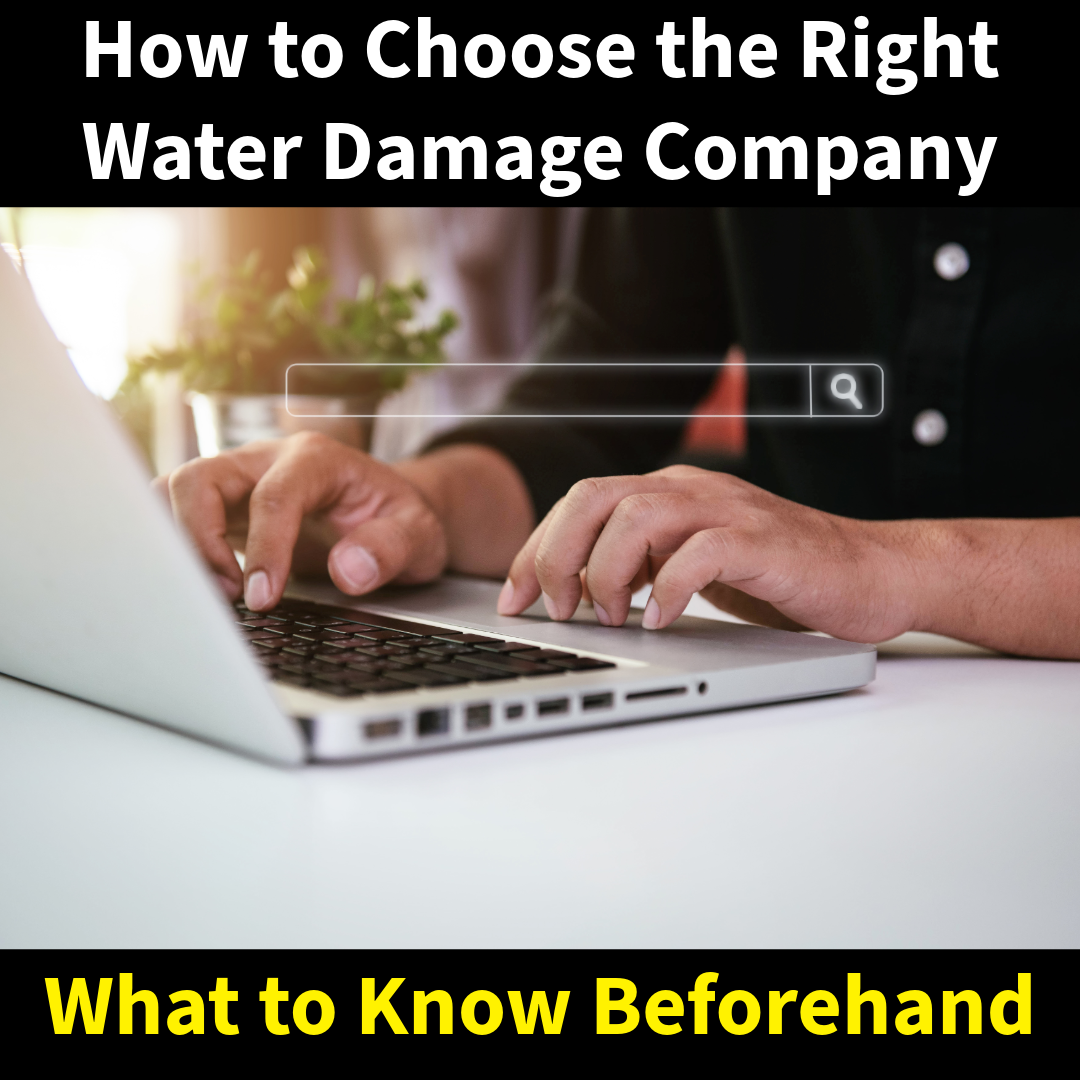When most people think of water damage, they picture a burst pipe or a leaky roof. But sewage losses are far more dangerous and destructive. Unlike clean or gray water leaks, sewage water (also known as Category 3 water) is highly contaminated and requires immediate professional cleanup. Understanding why sewage losses happen — and how to respond — can help protect your health, your home, and your investment.
What Is a Sewage Loss?
A sewage loss occurs when wastewater backs up into a home or business instead of draining properly. This water isn’t just dirty — it contains harmful bacteria, viruses, parasites, and chemical contaminants. Because sewage can spread quickly through flooring, walls, and personal belongings, every hour of delay makes cleanup more complex and costly.
The Most Common Causes of Sewage Losses
- Aging or Damaged Sewer Lines
Many properties still rely on older clay, cast iron, or Orangeburg pipes that deteriorate over time. Cracks, collapses, and corrosion can all cause sewage to back up into a property. - Tree Root Intrusion
Roots naturally seek moisture and can break into underground sewer pipes through tiny cracks or loose joints. Once inside, they expand, creating blockages that force sewage back into the property. - Heavy Rains and Flooding
When municipal sewer systems are overwhelmed by storms or snowmelt, excess water can push sewage backwards into homes — particularly basements and first floors. - Clogs from Improper Disposal
Flushing non-flushable items like wipes, paper towels, hygiene products, or pouring grease down drains creates blockages that prevent proper flow. Over time, this leads to sudden and messy backups. - Sewer Line Breaks or Misalignment
Shifting soil, construction activity, or poor installation can cause joints to separate, collapse, or misalign. This restricts sewage flow and increases the risk of backups.
Why Sewage Backups Are So Dangerous
- Serious Health Hazards
Category 3 water contains pathogens that can cause gastrointestinal illness, skin infections, and respiratory problems. Direct contact or even airborne exposure can be harmful. - Extensive Property Damage
Sewage water saturates drywall, flooring, insulation, and furniture. Most porous materials must be removed, not just cleaned, to prevent long-term contamination. - Lingering Odors and Hidden Contamination
Even after water is removed, dangerous bacteria can remain inside building materials, causing odors and long-term health risks if not properly treated.
Why Professional Cleanup Is Essential
Sewage losses are not a DIY job. Shop-vacs, mops, and household disinfectants cannot fully sanitize a contaminated area. Professional sewage cleanup includes:
- Full Safety Precautions – Crews wear PPE including respirators, gloves, and protective suits.
- Specialized Extraction – Industrial pumps and vacuums remove contaminated water quickly.
- Controlled Demolition – Unsalvageable materials such as carpet, insulation, and drywall are safely removed.
- Disinfection & Sanitization – EPA-approved disinfectants are applied to all affected surfaces.
- Structural Drying – Dehumidifiers and air movers prevent mold growth after cleanup.
Protecting Your Property from Future Sewage Losses
While not all sewage losses are preventable, there are steps you can take to reduce risk:
- Schedule routine inspections of older sewer lines.
- Avoid planting trees near underground sewer pipes.
- Install a backwater valve to prevent municipal backups during storms.
- Never flush wipes, feminine products, or paper towels — even if labeled “flushable.”
- Properly dispose of cooking grease instead of pouring it down drains.
Fast Response Matters
Every minute counts during a sewage loss. Delaying cleanup can mean higher repair costs, more property damage, and greater health risks.
At MSI, our trained teams are available 24/7 for emergency sewage cleanup and water damage restoration. We follow strict industry standards to remove hazardous water, sanitize the property, and restore it safely — giving you peace of mind when you need it most.
Call MSI today at 215-339-1769 for immediate sewage cleanup services.

